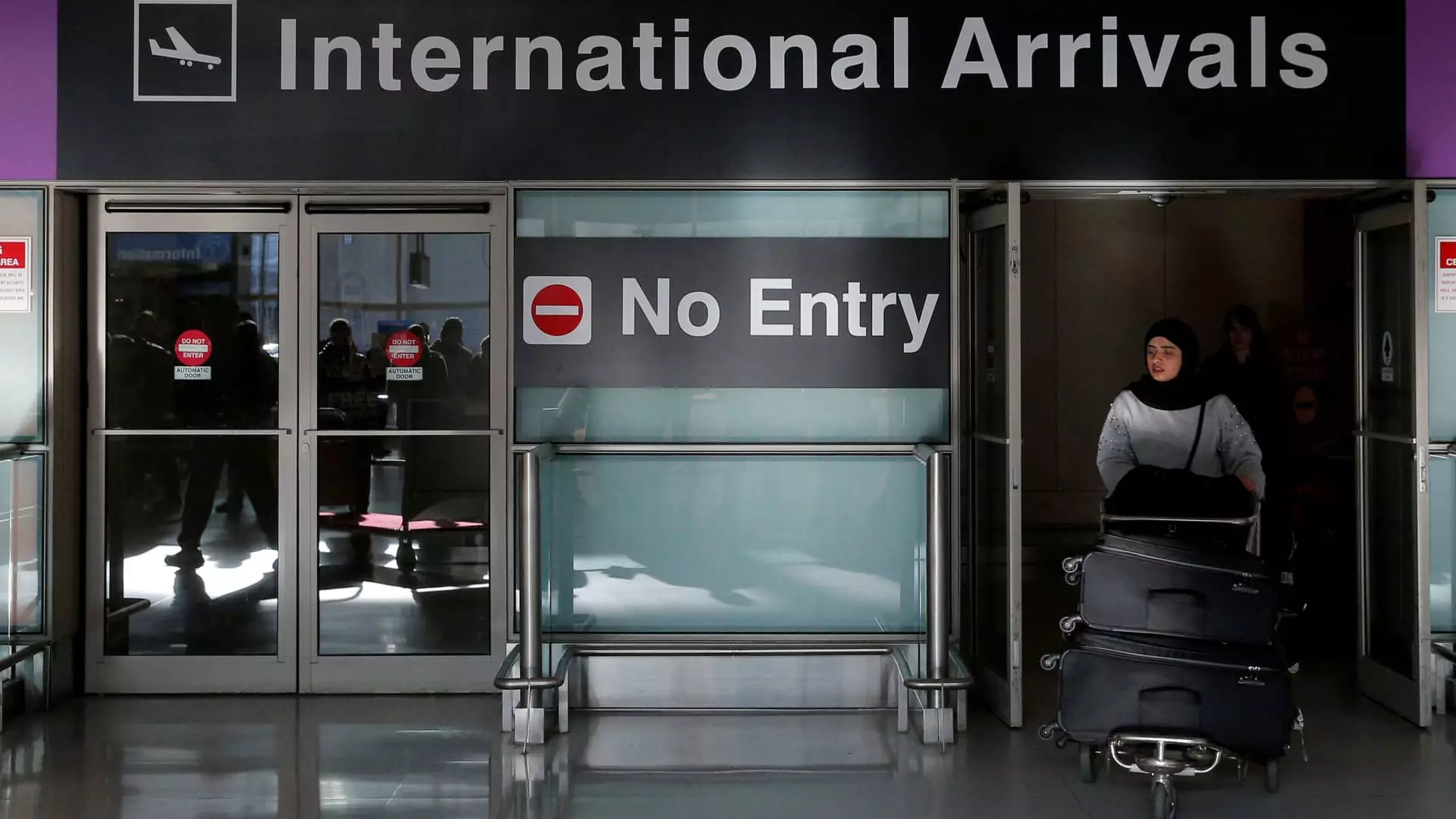Recent developments in U.S. immigration policy reflect a troubling regression into exclusionary practices that prioritize fear over compassion. The latest travel ban, enacted by former President Donald Trump, bars citizens from twelve predominantly African and Middle Eastern nations, rooting itself in a narrative cloaked in national security concerns. Yet, beneath this facade lies a stark reality: the ban endangers vulnerable populations who are desperately seeking refuge from catastrophic conditions in their home countries.
This proclamation, encompassing nations from Afghanistan to Yemen, highlights a growing trend where policies justified under the guise of public safety end up either promoting discrimination or amplifying existing prejudices. The implications are severe. It effectively penalizes individuals, like Haitian-American Elvanise Louis-Juste, who only wish to breathe in a breath of fresh hope away from violence and despair in their homelands. For too many, America has represented a sanctuary—a stark counterpoint to the chaos they are fleeing. The intentional crafting of such a ban reveals an insidious element to the administration’s approach.
Dissecting the Rationale Behind the Ban
Trump’s rhetoric linking visitors from the specified countries to terrorism-related risks has been met with skepticism by experts in immigration and asylum policies. Advocates have argued that the qualifications for banning these nations arise not from comprehensive strategies that prioritize security but from data manipulation and an oversimplified understanding of complex socio-political issues. When Trump referenced “deficient” screening processes, it appears the government is merely amplifying a narrative without addressing the root causes that prompt individuals to leave their countries in the first place.
Critically, the reliance on an annual Homeland Security report to justify the ban highlights a distorted understanding of the immigrant experience. Many individuals seeking entry are not criminals or dangerous terrorists; they are human beings driven by survival instincts and often flee from atrocious conditions, such as violent conflict and governmental oppression. By imposing heightened restrictions based on the nationality of these hopeful immigrants, the prevailing narrative currently tilts toward curbing diversity rather than fostering it.
The Human Cost of Policy Decisions
Any travel ban carries a price tag—the human cost. The anguish faced by families separated by artificial barriers makes a mockery of America’s once-proud identity as a beacon of hope. The anguish expressed by individuals like Louis-Juste showcases the emotional and psychological toll such policies inflict, which real-world experiences often contextualize far better than statistics. The grim emotional landscape often triumphs in shaping the discourse around immigration more than legal arguments ever could.
Groups dedicated to refugee resettlement have labeled the ban a means of division rather than a genuine effort to uphold national security. Oxfam America’s Abby Maxman aptly describes it as part of a campaign to vilify communities that seek safety and opportunity in the U.S. This serves as a painful reminder that when policies focus squarely on vilification instead of compassion, they contribute to a fractured and fearful society.
The Fallout of Stigmatization
While Trump’s administration defended the travel ban as a necessary measure to enhance security, the broader effects are detrimental not just to those who are directly affected but to the very fabric of American society. Stigmatizing individuals based on their nationality or religion fosters an environment where xenophobia thrives. It is a dangerous game that places entire communities under a shadow of suspicion and hostility—thereby polarizing the population further.
Internationally, the response was swift and unequivocal. Notably, Nicolás Maduro’s Venezuela condemned the travel ban with force, framing it as a tactic to “stigmatize and criminalize” innocent citizens simply for their homeland’s political struggles. Such opposition from foreign leaders emphasizes that this policy does not merely impact American domestic affairs; it contributes to a narrative that creates rifts between nations and facilitates anti-American sentiment abroad.
In stepping back and reflecting on these developments, one cannot help but question the path being charted. The ban reveals more than just a political maneuver; it reflects a fundamental disregard for human rights in pursuit of an unyielding agenda shielded by rhetoric. America’s commitment to freedom and sanctuary is not just a matter of policy; it is a divine responsibility to uphold compassion, humanity, and acceptance. The stakes are incredibly high, and the repercussions echo far beyond the immediate political landscape.


Leave a Reply